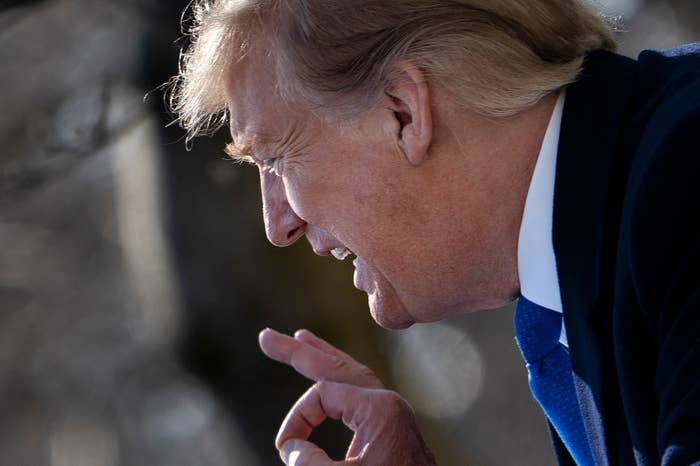
President Trump’s decision to build part of the wall along the Mexican border with Defense Department counternarcotics funds produced strong criticism from international drug trafficking experts.
Trump declared the national emergency to make “available additional troops and funding for military construction,” saying he would redirect some $8.1 billion in federal funds toward wall building, including $2.5 billion in money now allocated to military drug interdiction efforts, largely involving National Guard units and cooperation with civilian agencies such as the Department of Homeland Security and Drug Enforcement Agency.
The proposed redirection of DOD funds struck drug interdiction experts as a big mistake, especially amid a nationwide drug overdose epidemic. Those overdoses — largely from illicit drugs transported from overseas through ports of entry — killed more than 70,000 people last year. National Guard units collected over 3.3 million pounds of illicit drugs from U.S. communities in 2017 using funds that the President now wants to use to build the wall.
“It would be really ill-advised,” transnational crime expert Alex Toth of the University of Tampa, a former DEA special agent, told BuzzFeed News.
“It's terrible policy. It guts a vital coordinating function we rely on to interdict drugs domestically and internationally,” former Office of National Drug Control Policy official Rafael Lemaitre told BuzzFeed News. “We have limited resources to deal with the opioid crisis, and we should be looking for ways to get more out of each taxpayer dollar, not less.”
The counternarcotics money that Trump said he wants moved comes from a Defense Department program the lets National Guard units serve as a bridge between the police, the US Army and the US Navy. The US military supports efforts by law enforcement in places like Key West, for example, intercepting drug shipments by sea and air through the Caribbean, through which most of the cocaine in the US arrives.
Cocaine-related deaths are now essentially tied with heroin-related ones in the US, at about 15,000 a year according to the CDC. And nationwide opioid drug related deaths, tied to heroin and illicit fentanyl, meanwhile kill about 48,000 people every year.
Trump declared the overdose crisis a national emergency in 2017, but only produced a strategy for addressing the crisis at the end of last month. Both the Bush and Obama administration directed the use of the military to assist DHS in “securing and managing” the border with Mexico, Trump noted in his declaration, justifying the redirection of military spending away from counternarcotics toward wall construction. However that money didn’t go toward building a wall, said critics.
The effectiveness of militarizing efforts to stop narcotics trafficking is also up for debate, international criminal organization researcher and American University professor Anthony W. Fontes, told BuzzFeed News. But he said there is no way that building a wall will have any effect on US drug trafficking.
“Hell no, and you can quote me on that” he said. “Most of the complaints on the border are they need more better trained people with better technology at the ports of entry. This takes right away from the heart of that.”
